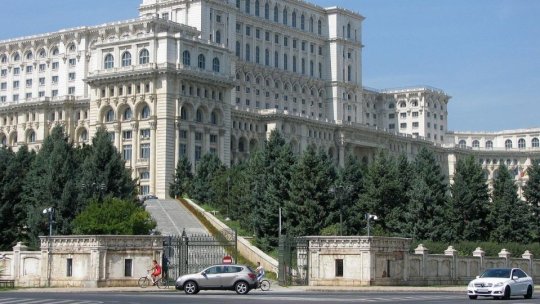Financial Press Review, November 25
Articles from Ziarul Financiar, Curierul Naţional, Economistul and Bursa.

Articol de Dinu Dragomirescu, 25 Noiembrie 2010, 20:22
The main topics that have drawn the attention of the financial press are the following: the response of both the IMF and the Fiscal Council regarding the income tax rebate voted by the senators, and the debates which were held at the Romanian Banking Forum, on Wednesay.
"Yesterday, the International Monetary Fund and the Fiscal Council bitterly criticized the Senate"s decision related to the income tax rebate to ten percent which puts in danger the budgetary targets and the collection of money from loans granted to the State by international banks; as a consequence, the international markets will punish the failure of fiscal commitments, too", as the Ziarul Financiar quotes.
"The proposals for continuously modifying the tax system leads to an imbalance in the business field and undermines the economic upturn", as the daily quotes Jeffrey Franks, the manager of the IMF mission in Romania.
The same daily runs an interrogative headline and presents information about the Banking Forum held on Wednesday: "Economy needs incentives, but where shall these come from?"
The Ziarul Financiar sums up the debates as follows: "tax collection improvement, the Polish public companies self-employment pattern application on the stock market and the encouraging of investments in the infrastructure are some of the solutions proposed by the economy forecasters for getting out of crisis taking into account the fact that it becomes clearer that adjustment measures taken by the Government can"t lead to an economic improvement".
The same daily quotes the advisor Doru Lionăchescu"s opinion, according to whom the idea of fulfilling the hopes of absorbing European funds is nothing but an illusion because European authorities are now more serious and locally there is no capacity of co-financing the investment scheme.
The Curierul Naţional outlines the statement of the Governor of the National Bank of Romania who claims: "instead of complaining that most of the schemes are not bankable, banks should give some suggestions to possible debtors."
"This would be one way for banks to get involved in the real economy. (…) Changing the business profile won"t be easy but it will happen", Mugur Isărescu concluded.
The Ziarul Finaciar quotes the opinion of the ING General Manager, Mişu Negriţoiu, who claims that "external debt is not the main present issue of our country".
Government"s debt is still low but using the funds is in the red.
The problem is that Government borrowed money only for daily needs.
In a front page article entitled "Who did take ninety billion euro from abroad?", the Curierul Naţional quotes the opinion of the financial analist , Ilie Şerbănescu, who attented the Forum and said that borrowing money for paying pensions and salaries equals bankruptcy.
The analist declares that he agrees with cutting down salaries and believes that the same will happen with pensions too.
"On the other hand, banks, the main responsible for this meltdown, should also pay a great amount of the bill and this is not really happening", as Ilie Şerbănescu claims in the Curierul Naţional.
Banks have been the mediators and if we are to be mischievous, we can say that they beguiled people, but the Romanian people borrowed in order to indebt Romania, not the banks', as the Bursa quotes Mugur Isărescu.
According to the NBR chief economist, Valentin Lazea, "Romania"s opportunity consisted in the meltdown itself. (…) Romania is lucky to face a churn in a moment when financial assets are still low so it is not late to steer national economy towards a more sustainable pattern", as stated in the Curierul Naţional.
"The same reshaping will not be easy because Romania doesn"t cope with a pay off issue but an entrepreneurial problem one, related to the organising capacity", emphasizes the same daily, quoting Mugur Isărescu.
Under the headline "The “First House” program – damaging to the quality of houses", the Economistul writes: "real estate investors claim that the Government should spend more time on issuing laws in order to avoid them overlap and not accept many interpretations, denying in the same time the efficacy of the program which encourages the building of houses of bad quality by means of the limits imposed".
Likewise, the topic is discussed in the Curierul Naţional under the headline "Why do they build bad and cheap houses?"
The same daily publishes an article entitled "After such a reform, the health system is still vulnerable"
"The small number of doctors, hospitals and clinics similar to the ones from the previous century insufficient and low-technology medical equipment, fee-free services against payment and the disappointing quality describe the health system in Romania after a twenty year reform".
The nineteen ministers responsible for introducing the reform didn"t manage to change the system as they stopped from implementing the measures that had been adopted", as we read in the Curierul Naţional.
"Post-revolutionary era has been marked only by insignificant changes in the health system, which had no direct effect neither on the quality of the medical services nor on the access of the patients to medication."
Translated by: Maricescu Cristina Anamaria
MA Student, MTTLC, Bucharest University









